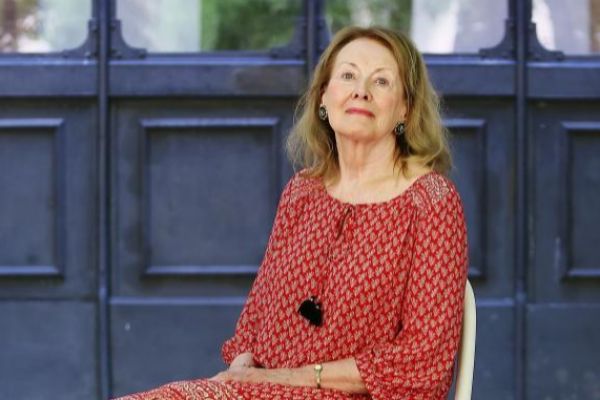Annie Ernaux (Lillebonne, Normandy, 1940) has an intimate diary that she sometimes uses for her books. She was a voracious reader from a very early age. But she became a writer later: in the naps of her first child she began writing a novel . His first manuscript was rejected. Les armoires vides was published in 1974 in Gallimard. It was still a novel, it was fiction, even if it was autobiographical. With La place ( The place , reissued in November Tusquets) he won the Renaudot prize in 1984. And that book was in which he found the Ernaux style, which has been described as a knife: it is dry, it is rough, it does not seek to thrill although he succeeds, he does not intend to arouse the reader's compassion, only to tell life as it is. That is why the language must be precise, of course, without frills, direct, as clean as possible.
But there is a book that began the transition, not so much in style but in gender: The Frosted Woman (1981, Cabaret Voltaire, 2016) was already a book without an iota of fiction in which he spoke of frustration, exhaustion of being a mother, a wife, having a job and wanting to write, how their expectations had collided with reality.
Annie Ernaux's books are part of a larger project that aims to account for life in all its complexity. Carrère says of her that what she does is a mixture of autobiography, history and sociology. And that is seen more than in any other book in Los años , Marguerite Duras and François Mauriac prize in 2008, the year of its publication in France, and which has just been reissued in Cabaret Voltaire (Herce translated it in 2012). The Man Booker International nomination meant that the publishing house that has been recovering Ernaux's books since 2015 and translating the new books will advance the departure of this collective memory from France, with a new translation by Lydia Vázquez Jiménez, which she writes with scrupulous rigor and efficiency the Ernaux style, its concern for language and orality.
The years is the most ambitious project of Annie Ernaux , it is her total work, the one that contains all her books, her interests, and also, precisely because of that, can serve as an entrance to her unique literature. In this book, Ernaux intends to tell the life of "a woman who has lived from 1940 to today"; "What you would like is to save everything in your book, what has existed around you, continually, save your circumstance."
Next to the window that overlooks the impressive garden of the Hotel Formentor, where he has come to receive the Formentor Prize, Annie Ernaux explains that her project was to "integrate, tell a life , mine, without the psychological details, my vital journey, inside of the general history of France. " The book has a peculiar structure, the journey through the six decades of the history of France is framed by lists of images, "all images will disappear," writes Ernaux at the beginning of the years and "save some of the time in which they no longer we will never be again, "he writes at the end.
In the middle, he reviews the decades of life and the decades of history, but his attention is focused mainly on social, political, philosophical, behavioral and habits changes : hunger and misery in the postwar period, Progress, sexual awakening, entry into adult life, women's liberation, consumer society, the arrival of the internet. All these social changes have a reflection in the particular lives, that of Ernaux acts here as a catalyst of all lives. Therefore, he describes photos of each of the decades, sometimes five years, in which he divides the story. In those photos she comes out, the writer addresses her past selves as if they were not really her anymore, because in part they are not, but also because she needed a certain distance. The years cover until the first decade of the millennium, when the author is seventy years old. If he continued, what would Ernaux have noticed? Migratory movements, social networks, how consumption has changed ... And on the side of private life? "I feel further from passion," he says.
As in other of his books, if not all, The years also has its own gestation and its construction, the writing, of which Ernaux has said that it has been "something more than love or life" , is the subject of the book . As in other books, the material he uses is heterogeneous: there are songs, movies, writers, but there are also slang terms, sayings or phrases that his mother said and never thought he would repeat. Only in this way can he undertake his project: "to capture the duration that constitutes its passage through the earth in a given time, that time that has crossed it, that world that she has recorded only with living".
According to the criteria of The Trust Project
Know more- culture
- literature
- novel
'The institute' Terror and reality, the hallmarks of Stephen King
The Paper SphereThe Barcelona of dreams, according to Javier Calvo
Literature Elizabeth Gilbert, the multiple layers of femininity

